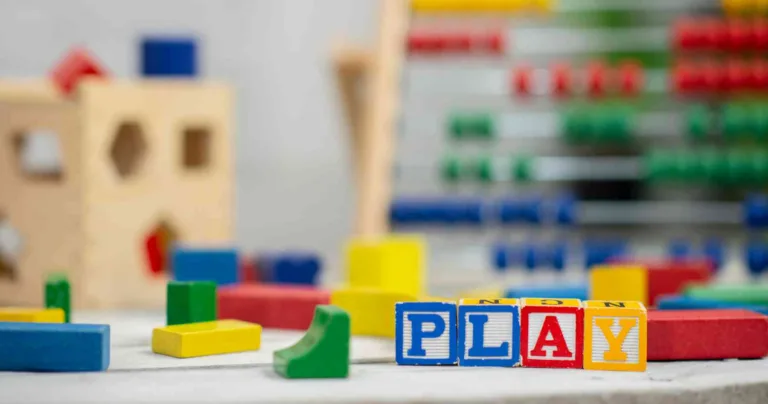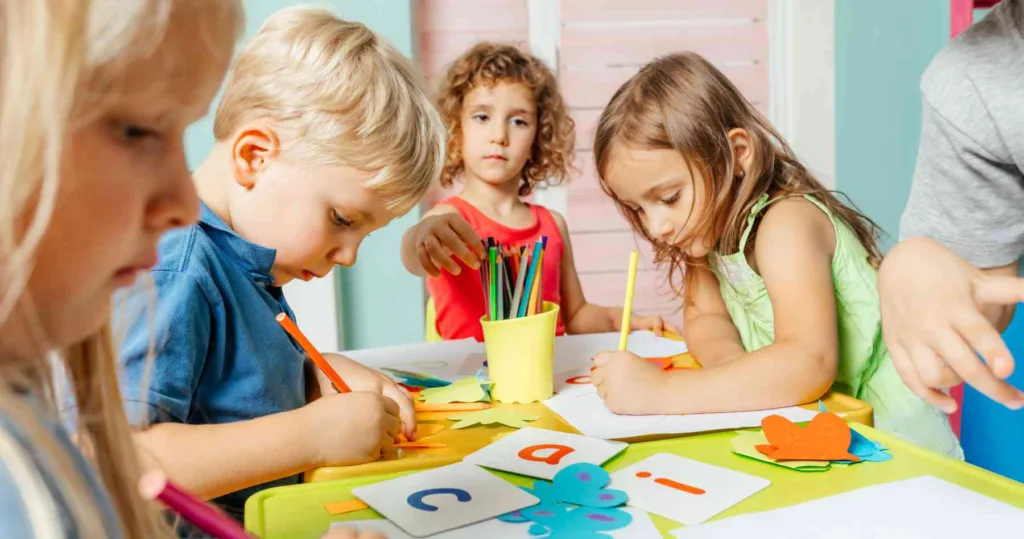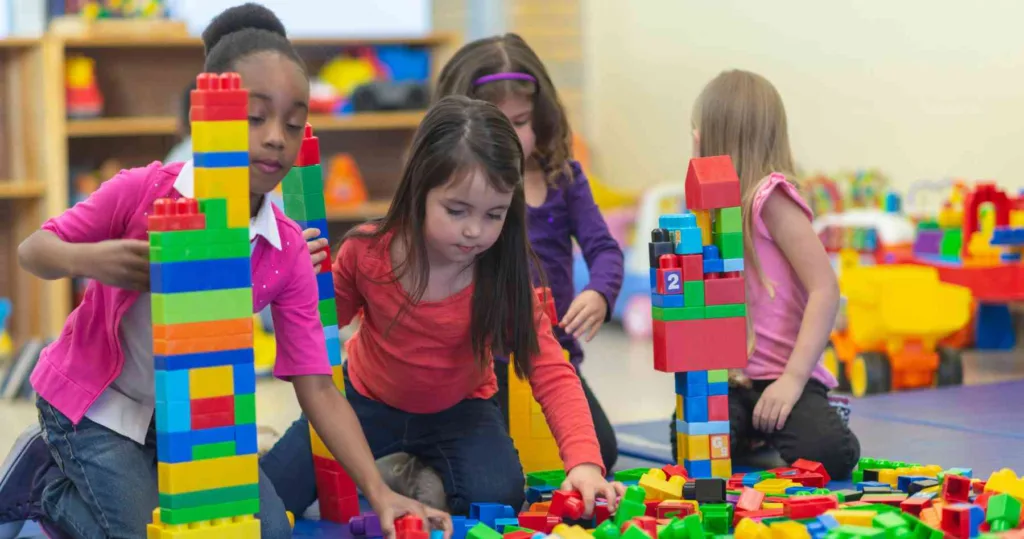The Importance of Play-Based Learning in Preschool
As parents and educators, we want our children to succeed academically and socially. While structured learning has its place, research shows that play-based learning in preschool is an effective way to support children’s growth and development. In this article, we will explore the importance of play-based learning in preschool, the benefits it offers, and how it can be incorporated into the curriculum.

Explanation of Play-Based Learning in Preschool
Play-based learning is an educational approach that uses play activities to help children learn and develop. These activities can be either structured or unstructured, and they are designed to be fun and engaging for children. Play-based learning is an active learning process that involves exploration, experimentation, and creativity.
Importance of Play-Based Learning in Preschool
Play-based learning is critical in preschool education as it provides an environment for children to develop their cognitive, emotional, social, and physical skills. It also encourages children to be curious, creative, and independent learners. Additionally, play-based learning provides a solid foundation for academic success later in life.
Purpose of the Article
The purpose of this article is to highlight the benefits of play-based learning in preschool and how it can be incorporated into the curriculum. We will discuss the benefits of play-based learning in detail and provide examples of activities that support learning and development.
Benefits of Play-Based Learning in Preschool
Play-based learning has numerous benefits for preschool children. Through play, children can develop their cognitive, emotional, social, and physical skills. Play-based learning allows children to be active learners who explore, experiment, and create, promoting critical thinking and problem-solving skills.
Additionally, play-based learning promotes emotional regulation, self-confidence, and social skills such as cooperation, communication, and conflict resolution. Physically, children can develop gross and fine motor skills through active play and fine motor activities. These benefits provide a solid foundation for academic success later in life and prepare children for a lifetime of learning and growth.
Cognitive Development
Play-based learning activities such as puzzles, building blocks, and sorting games promote spatial awareness, hand-eye coordination, and logical thinking. Through these activities, children develop their problem-solving, critical thinking, and creativity skills.
Emotional Development
Play-based learning activities support emotional development by allowing children to explore their feelings through role-playing, imaginative play, and storytelling. These activities build resilience, self-confidence, and emotional regulation.
Social Development
Play-based learning activities promote social development by encouraging communication, cooperation, and conflict resolution. Through activities like cooperative games, role-playing, and imaginary play, children learn how to share, take turns, and respect others’ perspectives.
Physical Development
Play-based learning activities support physical development by promoting gross and fine motor skills. Active play such as running, jumping, and climbing can help build strength, coordination, and balance. Fine motor activities such as drawing, cutting, and threading can improve hand-eye coordination and dexterity.


Get In touch
Leave us a message
4 Claret Road, Table View, 7441
(021) 556 4146
office@applebeekids.com
Play-Based Activities That Support Learning and Development
Play-based activities are an essential aspect of preschool education as they provide a fun and engaging environment for children to learn and develop. Sensory play, dramatic play, building and construction play, and creative play are examples of activities that support learning and development. Sensory play activities such as finger painting and sand and water play help children explore different materials and develop their senses.
Dramatic play activities such as dress-up and puppet shows allow children to experiment with language, emotions, and different roles. Building and construction play activities such as building towers and bridges promote problem-solving skills, spatial awareness, and hand-eye coordination. Creative play activities such as drawing and painting encourage self-expression, imagination, and creativity. These activities provide a holistic approach to learning, supporting the cognitive, emotional, social, and physical development of children.
Sensory Play
Sensory play involves using different materials to explore the senses, such as touch, taste, smell, and sight. Examples of sensory play activities include finger painting, sand and water play, and playdough.
Dramatic Play
Dramatic play involves role-playing and pretending. It allows children to explore different roles, experiment with language and emotions, and build their confidence. Examples of dramatic play activities include dress-up, puppet shows, and acting out stories.
Building and Construction Play
Building and construction play involves using blocks, Legos, and other materials to create structures and models. It promotes spatial awareness, hand-eye coordination, and problem-solving skills. Examples of building and construction play activities include building towers, bridges, and houses.
Creative Play
Creative play involves using materials such as paint, markers, and crayons to express oneself artistically. It encourages self-expression, imagination, and creativity. Examples of creative play activities include drawing, painting, and collage-making.
ExcellentBased on 28 reviews Trustindex verifies that the original source of the review is Google.
Trustindex verifies that the original source of the review is Google. Pieter Kotze2022-03-11Great pre-primary school in Table View, it has been there for many years and we are now on the verge of sending the 2nd generation there and although they have been around for years, the staff are current and up to date with the latest in childcare and early childhood education, peace of mind for sure...Trustindex verifies that the original source of the review is Google.
Pieter Kotze2022-03-11Great pre-primary school in Table View, it has been there for many years and we are now on the verge of sending the 2nd generation there and although they have been around for years, the staff are current and up to date with the latest in childcare and early childhood education, peace of mind for sure...Trustindex verifies that the original source of the review is Google. Gareth Bolt2021-08-20Jackie,Maude and Applebee team look after our little boy so wonderfully!Trustindex verifies that the original source of the review is Google.
Gareth Bolt2021-08-20Jackie,Maude and Applebee team look after our little boy so wonderfully!Trustindex verifies that the original source of the review is Google. Shakurah Hackley2021-08-20My son loves his teachers. They care for our kids and go the extra mile.Trustindex verifies that the original source of the review is Google.
Shakurah Hackley2021-08-20My son loves his teachers. They care for our kids and go the extra mile.Trustindex verifies that the original source of the review is Google. Nolu Mandindi2021-08-19My daughter been a student since 2019, her brother joined her in 2021, we couldn't be happier with the professionalism shown by the staff. The constant feedback from teachers on progress is on point.
Nolu Mandindi2021-08-19My daughter been a student since 2019, her brother joined her in 2021, we couldn't be happier with the professionalism shown by the staff. The constant feedback from teachers on progress is on point.
Incorporating Play-Based Learning in Preschool Curriculum
Incorporating play-based learning into the preschool curriculum can be a challenge due to the pressure to meet academic standards and the lack of resources. However, educators can overcome these challenges by creating a dedicated play area with a variety of materials and resources for different types of play. Additionally, they can incorporate play-based activities into the daily routine and align them with learning objectives.
Communicating with parents and caregivers about the importance of play-based learning and encouraging them to support it at home can also be helpful. Several play-based learning curriculums, such as the HighScope curriculum, Reggio Emilia approach, and Montessori method, prioritize play-based learning and can serve as a guide for educators. By incorporating play-based learning into the curriculum, educators can support children’s learning and development while creating a fun and engaging environment for them to learn in.
Challenges to Implementing Play-Based Learning
One challenge in incorporating play-based learning into the preschool curriculum is the lack of resources, such as space and materials. Another challenge is the pressure to meet academic standards and prepare children for standardized tests.
Ways to Overcome These Challenges
To overcome the challenges of implementing play-based learning, educators can create a dedicated play area with a variety of materials and resources for different types of play. They can also incorporate play-based activities into the daily routine, such as allowing time for free play and incorporating learning objectives into play activities. Additionally, educators can communicate with parents and caregivers about the importance of play-based learning and encourage them to support it at home.
Examples of Play-Based Learning Curriculums
Several play-based learning curriculums are available for preschool educators, including the HighScope curriculum, Reggio Emilia approach, and Montessori method. These curriculums prioritize play-based learning and emphasize child-centered and experiential learning.
Play-based learning is an effective way to support children’s growth and development in preschool. It provides a fun and engaging environment for children to develop cognitive, emotional, social, and physical skills. While there may be challenges in incorporating play-based learning into the curriculum, the benefits are well worth the effort. By creating a dedicated play area and incorporating play-based activities into the daily routine, educators can support children’s learning and set them up for success in the future.
